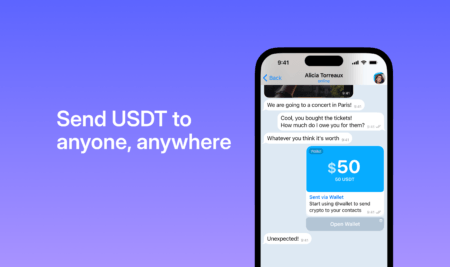CoinText, a text message-based cryptocurrency payment processor, is reportedly planning to expand its operations by offering its services to users in Romania, Croatia, Poland, and Brazil.
In its announcement, CoinText noted that its payment service had been extended to other countries in order to encourage more users to use bitcoin cash (BCH).
CoinText’s crypto payment service does not require users to have internet access as its platform lets users make cryptocurrency transfers and check their account balance by simply sending text messages, and using basic SMS commands.
Vin Armani, the founder and chief technical officer of CoinText, said:
Adding Poland, Croatia and Romania brings us closer to connecting the entire continent of Europe. CoinText’s end-of-year goal is to enable all 740 million European residents to text money to each other’s phones for pennies.
Texting Bitcoin Cash (BCH) To Friends
As explained on CoinText’s official website, the company’s payment system works by requiring users to set up a new crypto wallet “by texting START to the CoinText access number for [their] region.”
After sending the START message, users need to “Add BCH to [their] address … [and then they can begin] texting money to [their] friend’s phone numbers or pay for anything where BCH is accepted.”
On October 15th, CoinText had expanded its coverage to Argentina and Turkey as the economy of both countries is currently suffering due to poorly planned monetary policies and political issues.
Commenting on the problems Turkey’s residents are facing, which may partially be attributed to the US administration increasing tariffs on the nation’s steel and aluminum exports, Armani said “bitcoin [cash] is better money” compared to the fiat currencies of many nations as it helps to hedge against high inflation rates.
Increased Crypto Adoption During Times Of Economic Hardship
As covered, the citizens of Venezuela are currently suffering from one of the worst economic crises in modern history. In order to cope during times of extreme economic hardship, which has led to to Venezuelan bolivar becoming practically worthless, the nation’s residents have increasingly begun to use cryptocurrencies – particularly bitcoin (BTC).
As CryptoGlobe covered on October 19th, Venezuelan president Nicolas Maduro’s administration announced that it had authorized six local exchanges to support trading for the nation’s controversial cryptocurrency, the Petro.
Although there are now numerous confirmed reports that the Petro is not being used for transactions in Venezuela, the country’s residents are increasingly using other cryptocurrencies to make everyday purchases or to process transactions for their business.









